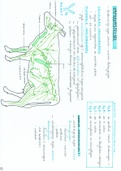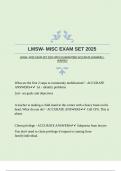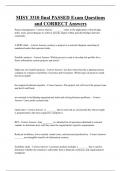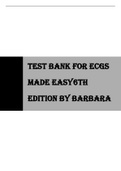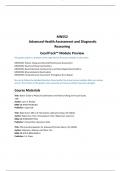Designing Research Lectures
Lecture 1
History of science (physics):
- Aristotle
- Scientific revolution (1500-1750) → Darwin, Rene Descartes
Systematically doubting everything
- Relativity theory and Quantum mechanics
No new theories that are in sync with our senses, only more difficult theories.
- Epistemology in Philosophy
Question about how we gain knowledge, how do we know?
- Brain injuries around WWI and WWII
- Behaviorism → Skinner, Pavlov
- Chomsky, Turning and the Cognitive Revolution
What is science?
Claims backed up by empirical data.
Opposites are very important → investigate that instead of proving something is true
What is no science? → Pseudoscience
Anything subjective: Astrology, metaphysics, psychoanalysis, dialectic materialism
Syllogism:
All A’s are B’s. → Premises All gasses expand when heated
X is an A. Helium is a gas
------------------------------------------------
Therefore, X is a B → Conclusion Therefore, Helium expands when heated
Inductive reasoning: aims to develop a theory.
→ Singular observations lead to universal statements, the conclusion is supported by
premises, but not necessarily true.
Deductive reasoning: aims to test an existing theory.
→ Conclusion is necessarily true if premises are true, which makes them powerful.
Problem of induction:
If A has been reliable in the past, it will be in the future
In the past, A has been reliable
--------------------------------
Therefore, A will be reliable in the future
→ Last statement follows the first
!But the first statement requires justification!
Without induction, there are no experiments
Scientific process according to Popper:
From a(n): Idea, theory, hypothesis, theoretical system → Empirical predictions that are
deductively inferred. These predictions can be empirically tested
1
,Predictions (born out of theory) can:
Support the theory (Temporary verification)
Contradict the theory (Falsification)
!All it takes to falsify a theory is a single empirical observation!
Problem of demarcation:
- For the inductivist, a way to demote metaphysics
- For Wittgenstein, a matter of meaning,
- For Popper, a proposal/convention
- Falsifiability as a criterion for demarcation
- Falsifiable is not the same as Falsified
Seminar 1
Hypothesis:
General hypothesis:
if A, then B
use conceptual definitions
Specific hypothesis:
Use operational definitions
make sure it is falsifiable and testable
!Beware of post-hoc hypotheses!
HW 11/11/2023
Popper terms Ch 1.
Inductive methods: methodes die voort komen uit een singular statement
Universal statements: hypotheses of theorieen.
Problem of induction: De vraag of inductieve gevolgtrekkingen gerechtvaardigd zijn, zo
niet, onder welke voorwaarden
Principle of induction: een verklaring met behulp waarvan we inductieve gevolgtrekkingen
kunnen omzetten in een logisch aanvaardbare vorm
A priori: iets wat iemand van te voren al kan weten, zonder daar specifieke kennis over te
hebben.
Apriorism: vooropgezette mening
psychology of knowledge: gaat over empirische data/feiten
logic of knowledge: gaat over logische relaties
questions of fact (quid facti?): Emperisch resultaat/feit????
justification or validity (Kant’s quid juris?): deductie???
‘rational reconstruction’: het vinden van een ‘nieuwe’ waarheid
falsified: Aangetoond dat het niet klopt, verworpen
‘corroborated’: Bevestigd
‘epistemological’: de leer van het weten of de kennis en richt zich op de vraag naar
waarheid of zekerheid.
concepts: Begrippen of ideeen.
statements: verklaringen
naturalistic: het interpreteren van problemen alsof ze uit de natuurlijke wetenschap komen
2
, ‘conclusively decidable: De vorm moet zo zijn dat de vraag geverifieerd of verworpen kan
worden op een logische manier
conclusive verification: Als er geen mogelijkheid is om te bepalen of een statement waar
is, heeft het statement geen betekenis
verifiability: verifieerbaarheid
falsifiabilit: verwerpelijkheid
ad hoc: voor deze huidige/specifieke situatie
perceptual experiences: iets waarnemen en daardoor geloven dat het ook echt zo is.
basic statements: een statement dat kan dienen als een premise in een empirische
verwerping: een statement van een singular fact
objectivity: zonder interpretatie of mening
psychological hypothesis: hypothese op basis van psychologische en andere theorieën,
doen; en deze mogen tijdens experimentele tests bevestigd of weerlegd worden
ad infinitum: oneindig
Lecture 2
Big picture of research design: you have to learn more than a collection of methods or
research practices.
Invisible research objects: Understanding behavior and mental processes really means
understanding what makes behavior, thought and emotion vary.
Possible exam questions:
What does the author mean that the mean is a fulcrum? (fulcrum = ??????????)
→ ´a thing that plays a central/ essential role in an activity, event, or situation´
What do positive and negative values of deviation scores tell us?
→ Positive above the mean, negative below the mean.
What happens when you sum all the deviation scores of a sample data?
→
How do we solve the sum-to-zero of deviation scores?
→ Divide by (sample size - 1)
How do we fix the dependence between sample size and the magnitude of the total sum of
squares?
→
!All RQ are about variability in their operationalized form. Therefore, all research design has
to be geared to interpreting such variability at the theoretical level!
Effect size:
The higher proportion of systematic variance → The higher effect size
↪ How strong the relation between variables is
- Absolute: a larger value always indicates a stronger effect. Same units as the original
measurement (milli sec, microvolts, frequencies)
3
Lecture 1
History of science (physics):
- Aristotle
- Scientific revolution (1500-1750) → Darwin, Rene Descartes
Systematically doubting everything
- Relativity theory and Quantum mechanics
No new theories that are in sync with our senses, only more difficult theories.
- Epistemology in Philosophy
Question about how we gain knowledge, how do we know?
- Brain injuries around WWI and WWII
- Behaviorism → Skinner, Pavlov
- Chomsky, Turning and the Cognitive Revolution
What is science?
Claims backed up by empirical data.
Opposites are very important → investigate that instead of proving something is true
What is no science? → Pseudoscience
Anything subjective: Astrology, metaphysics, psychoanalysis, dialectic materialism
Syllogism:
All A’s are B’s. → Premises All gasses expand when heated
X is an A. Helium is a gas
------------------------------------------------
Therefore, X is a B → Conclusion Therefore, Helium expands when heated
Inductive reasoning: aims to develop a theory.
→ Singular observations lead to universal statements, the conclusion is supported by
premises, but not necessarily true.
Deductive reasoning: aims to test an existing theory.
→ Conclusion is necessarily true if premises are true, which makes them powerful.
Problem of induction:
If A has been reliable in the past, it will be in the future
In the past, A has been reliable
--------------------------------
Therefore, A will be reliable in the future
→ Last statement follows the first
!But the first statement requires justification!
Without induction, there are no experiments
Scientific process according to Popper:
From a(n): Idea, theory, hypothesis, theoretical system → Empirical predictions that are
deductively inferred. These predictions can be empirically tested
1
,Predictions (born out of theory) can:
Support the theory (Temporary verification)
Contradict the theory (Falsification)
!All it takes to falsify a theory is a single empirical observation!
Problem of demarcation:
- For the inductivist, a way to demote metaphysics
- For Wittgenstein, a matter of meaning,
- For Popper, a proposal/convention
- Falsifiability as a criterion for demarcation
- Falsifiable is not the same as Falsified
Seminar 1
Hypothesis:
General hypothesis:
if A, then B
use conceptual definitions
Specific hypothesis:
Use operational definitions
make sure it is falsifiable and testable
!Beware of post-hoc hypotheses!
HW 11/11/2023
Popper terms Ch 1.
Inductive methods: methodes die voort komen uit een singular statement
Universal statements: hypotheses of theorieen.
Problem of induction: De vraag of inductieve gevolgtrekkingen gerechtvaardigd zijn, zo
niet, onder welke voorwaarden
Principle of induction: een verklaring met behulp waarvan we inductieve gevolgtrekkingen
kunnen omzetten in een logisch aanvaardbare vorm
A priori: iets wat iemand van te voren al kan weten, zonder daar specifieke kennis over te
hebben.
Apriorism: vooropgezette mening
psychology of knowledge: gaat over empirische data/feiten
logic of knowledge: gaat over logische relaties
questions of fact (quid facti?): Emperisch resultaat/feit????
justification or validity (Kant’s quid juris?): deductie???
‘rational reconstruction’: het vinden van een ‘nieuwe’ waarheid
falsified: Aangetoond dat het niet klopt, verworpen
‘corroborated’: Bevestigd
‘epistemological’: de leer van het weten of de kennis en richt zich op de vraag naar
waarheid of zekerheid.
concepts: Begrippen of ideeen.
statements: verklaringen
naturalistic: het interpreteren van problemen alsof ze uit de natuurlijke wetenschap komen
2
, ‘conclusively decidable: De vorm moet zo zijn dat de vraag geverifieerd of verworpen kan
worden op een logische manier
conclusive verification: Als er geen mogelijkheid is om te bepalen of een statement waar
is, heeft het statement geen betekenis
verifiability: verifieerbaarheid
falsifiabilit: verwerpelijkheid
ad hoc: voor deze huidige/specifieke situatie
perceptual experiences: iets waarnemen en daardoor geloven dat het ook echt zo is.
basic statements: een statement dat kan dienen als een premise in een empirische
verwerping: een statement van een singular fact
objectivity: zonder interpretatie of mening
psychological hypothesis: hypothese op basis van psychologische en andere theorieën,
doen; en deze mogen tijdens experimentele tests bevestigd of weerlegd worden
ad infinitum: oneindig
Lecture 2
Big picture of research design: you have to learn more than a collection of methods or
research practices.
Invisible research objects: Understanding behavior and mental processes really means
understanding what makes behavior, thought and emotion vary.
Possible exam questions:
What does the author mean that the mean is a fulcrum? (fulcrum = ??????????)
→ ´a thing that plays a central/ essential role in an activity, event, or situation´
What do positive and negative values of deviation scores tell us?
→ Positive above the mean, negative below the mean.
What happens when you sum all the deviation scores of a sample data?
→
How do we solve the sum-to-zero of deviation scores?
→ Divide by (sample size - 1)
How do we fix the dependence between sample size and the magnitude of the total sum of
squares?
→
!All RQ are about variability in their operationalized form. Therefore, all research design has
to be geared to interpreting such variability at the theoretical level!
Effect size:
The higher proportion of systematic variance → The higher effect size
↪ How strong the relation between variables is
- Absolute: a larger value always indicates a stronger effect. Same units as the original
measurement (milli sec, microvolts, frequencies)
3


